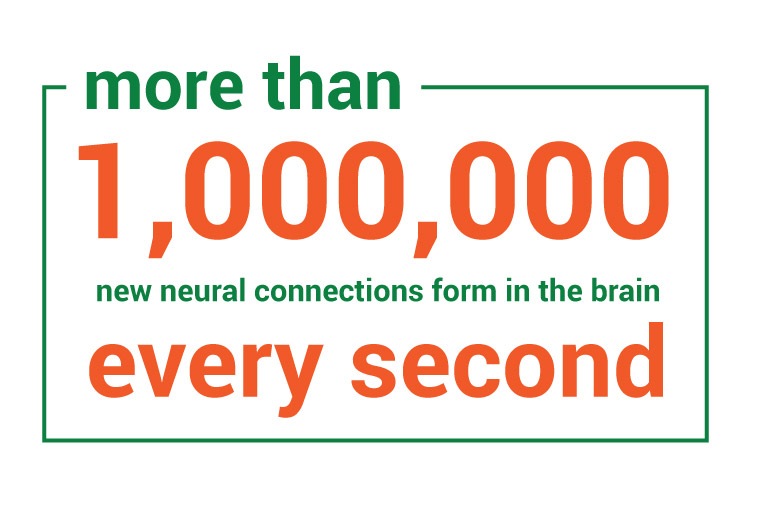Why Investing Early Matters
Investing Early Makes Sense
Spending on early childhood development is not just important for the well-being of our children, but also makes good economic sense. An investment in children ages 0 to 3 has a higher rate of return than an investment in preschool, K-12 education or job training later in life. Every dollar invested in early childhood yields a $4 to $16 return
Nobel Prize-winning economist James Heckman found that the highest rates of return in early childhood development came from investing as early as possible. His research found that one of the most effective strategies for economic growth is investing in the development of at-risk young children and their families. The short-term costs are offset by a reduction in need for special education and remediation, better health outcomes, reduced need for social services, lower criminal justice costs and increased self-sufficiency and productivity among families.


Brain Science
The first three years of life are also critical for brain development, with 80% of brain growth occurring before age three. In the first 2,000 days — from birth to kindergarten — over one million new neural connections form every second, building the foundation for future learning, behavior, and health. While genes provide the blueprint, repeated experiences strengthen brain circuits. That’s why Ready Ready and the Cemala Foundation support The Basics Guilford, a skill-building campaign helping parents foster healthy brain development.
Emotional wellbeing supported by responsive relationships helps lay the foundation for brain architecture. But toxic stress or the presence of Adverse Childhood Experiences (ACES) can weaken it, leading to lifelong problems in learning, behavior, and physical and mental health. Our society’s future depends on our ability to cultivate the next generation’s healthy development.


